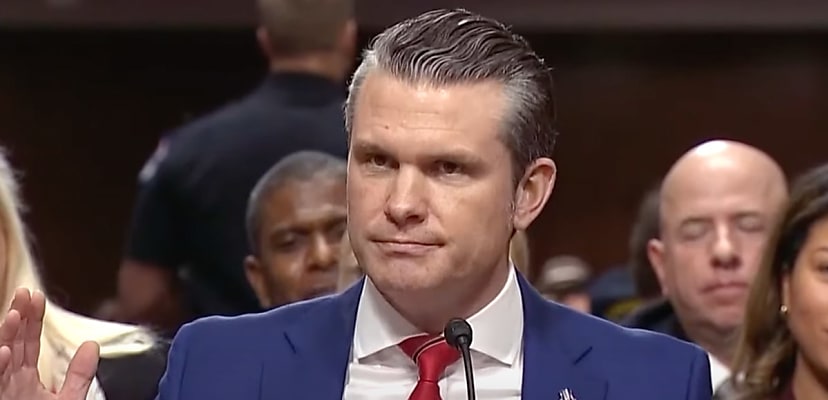Share this article on:
Powered by MOMENTUMMEDIA
Breaking news and updates daily.
Pete Hegseth recognises cyber space as a primary battleground for both state-based and non-state threat actors targeting sensitive military data and critical infrastructure.

These actors, including organised cyber criminals, state-sponsored hackers, and even terrorist groups, have become sophisticated in their efforts to disrupt economic, political, and strategic assets globally via ongoing cyber attacks and criminal efforts.
This evolving landscape underscores the urgent need for the United States to enhance its cyber toolkit and adopt a more unified, cross-government approach to defend against these persistent threats, particularly from major adversaries such as Russia and China.
Speaking during his confirmation hearing this week, Pete Hegseth highlighted: “I would review the status of the Cyber Mission Force and ensure the department is appropriately positioned, in partnership with DHS and law enforcement, to protect the nation from cyber attacks.”
He elaborated on the multifaceted nature of the threat: “The People’s Republic of China (PRC) is engaged in extensive cyber espionage, routinely launching malicious attacks against the US, its allies, and partners. It also conducts surveillance on individuals globally, including US citizens, whom it considers enemies of the state. Russia, meanwhile, remains a serious and ongoing cyber threat, with its efforts aimed at manipulating public opinion and eroding trust in US systems.”
Hegseth stressed the critical importance of recognising cyber space as a warfighting domain. “If confirmed, I will ensure that appropriate resources and policy are allocated to cyber space operations, as it has evolved into an essential domain for national security. The DOD’s vast cyber capabilities must continue to receive the necessary investment and coordination with other US government partners to proactively defend against all cyber actors, whether state or non-state,” he said.
In response to the expanding threat landscape, Hegseth’s push for a “whole-of-government” strategy is intended to strengthen the United States’ cyber ecosystem. This approach aims to improve the resilience of both public and private sectors against foreign interference, cyber espionage, and other malicious cyber activities while also ensuring that Americans’ constitutional rights are upheld. The increased frequency of attacks on critical infrastructure, such as financial systems, healthcare, and energy grids, necessitates a multi-layered defence strategy, one that incorporates both preventative and responsive measures.
Hegseth also addressed the vulnerability of the defence industry, a prime target for cyber espionage. He said: “While cyber space operations are the responsibility of a relatively small number of cyber professionals, cyber risk is a challenge that must be shared across the entire defence enterprise.” He further emphasised that the Department of Defense (DOD) has pledged to cultivate a culture of cyber security awareness across the board. This includes ensuring military and civilian leaders possess baseline fluency in cyber security issues, with a strong focus on general officer and senior executive service leadership courses to promote a comprehensive approach to cyber resilience.
To complement these efforts, Hegseth underscored the importance of collaborating with the private sector, particularly the civilian technology industry. He pointed out that the expertise within the civilian workforce could play a vital role in enhancing the capabilities of the Cyber Mission Force. “The Cyber Mission Force could benefit greatly from better access to, and assistance from, top technical talent from civilian technology companies,” he said. “I applaud initiatives like the Defense Innovation Unit, which aims to place civilians in reserve status to support national security efforts with their technical expertise.”
This enhanced collaboration with the tech sector would help create a more agile and adaptable cyber security workforce, ready to address evolving threats in real time. Hegseth said: “If confirmed, I will work with Congress to review and improve the nation’s classified offensive and defensive cyber operations, ensuring we remain ahead of our adversaries in this crucial domain.”
The increasing sophistication of cyber threats from state and non-state actors underscores the need for urgent action. As cyber attacks grow in scale and complexity, the US recognises the importance of robust, collaborative efforts across both government and private sectors to protect the nation’s critical infrastructure and maintain a competitive edge in cyber space.
Be the first to hear the latest developments in the cyber industry.